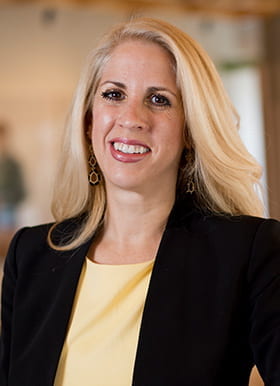Like many families across the globe, Israeli families have been facing the challenges of raising children during the COVID-19 pandemic. Not only do Israeli families have to adjust to large changes in their child(ren)’s schooling, but they are also forced to cope with the financial shocks, such as job and/or income loss that come with […]
Israeli Employers Don’t Forecast Vaccine Will Bring Jump in Hiring (Links to an external site)
Results from the Socioeconomic Impacts of COVID-19 Survey were published in Haaretz, an Israeli publication.
The Far-Reaching Impacts of COVID-19 on the Financial Lives of Israelis – Differences by Religion and Ethnicity
Press Release: October 25, 2020 With a COVID-19 death toll exceeding 2,000, Israel now has one of the highest per capita deaths in the world. Feelings of frustration and despair have resulted in the largest anti-government demonstrations since the establishment of the country, emphasizing that a central crisis during the COVID-19 is a growing divide […]
Three reasons young Israeli adults may face catastrophic, long-term financial burden from COVID-19

Press Release: September 25, 2020 The potentially catastrophic, long-term financial impacts of COVID-19 on young adults are highlighted in the Socioeconomic Impacts of COVID-19 Survey[1] in Israel, which was administered between June 4 and July 1 by the Social Policy Institute at Washington University in St. Louis in partnership with Mastercard. The survey results found […]
Long-term effects of the Coronavirus on the economic situation in Israel (Links to an external site)
Panet, an Israeli media site, cited SPI research of the long-term effects of the Coronavirus on the economic situation in Israel.
Household savings decisions in Israel’s child savings program: The role of demographic, financial, and intrinsic factors
This study examines how demographic, financial, and intrinsic personality characteristics predict household participation in Israel’s Child Development Account (CDA) program, the Savings for Every Child Program (SECP).
An epidemic of food insecurity in Israel (Links to an external site)
Davar Today, a newspaper in Israel, interviewed Michal Grinstein-Weiss about the impact of COVID-19 on food insecurity in Israel. The data presented is based on the Socioeconomic Impacts of COVID-19 Survey in Israel.
Hardship is greatest among vulnerable Israelis already struggling financially
By: Olga Kondratjeva, data analyst III, Social Policy Institute; Michal Grinstein-Weiss, director, Social Policy Institute; Talia Schwartz-Tayri, researcher, Ben-Gurion University of the Negev; John Gal, professor, The Paul Baerwald School of Social Work and Social Welfare, The Hebrew University of Jerusalem; senior researcher, the Taub Center for Social Policy Studies in Israel; & Stephen Roll, […]
Challenges and Opportunities in Developing Child Savings Programs in Israel and Uganda: Oct. 15

From 10:00 a.m. to 11:30 a.m. (CT) on Oct. 15, join the Social Policy Institute (SPI), the International Center for Child Health and Development (ICHAD), and the Next Age Institute (NAI) for a discussion about asset building for long-term child development and CSA programs—with the particular focus on CSAs in Israel and Uganda, which differ greatly in their structure.
Michal Grinstein-Weiss, Stephen Roll and Olga Kondratjeva receive grant for COVID-19 research in Israel (Links to an external site)
Michal Grinstein-Weiss, director of SPI and principal investigator, and Olga Kondratjeva, postdoctoral research assistant at SPI, were awarded a grant from McDonnell Academy to examine the economic impacts of and policy responses to the COVID-19 pandemic.
Household Savings Decisions in Israel’s Child Savings Program: The Role of Demographic, Financial, and Intrinsic Factors
Israel’s Child Development Account (CDA) program, the Savings for Every Child Program (SECP), is universal and automatically enrolls all children under the age of 18, depositing approximately $14 into their accounts every month. Parents can transfer an additional monthly $14 into these long-term savings accounts and can choose an investment vehicle for their children’s deposits. […]
The Saving for Every Child Program in Israel: an overview of a universal asset-building policy
In 2017, the Israeli government implemented a universal child development account programme – the Saving for Every Child Program (SECP) – which establishes a personal savings account for every Israeli child and provides monthly deposits until the child turns 18. The SECP has the potential to provide substantial assets when children reach adulthood, but the […]
Enrollment and participation in a universal child savings program: Evidence from the rollout of Israel’s National Program
Child Development Accounts (CDAs) are savings or investment accounts typically opened at birth or during a child’s early years with the aim of promoting savings and asset accumulation for child development purposes, such as post-secondary education or homeownership. Beginning in January of 2017, the Israeli government established a universal CDA program called the Saving for […]
Social Impact Nudgeathon: Israel
Research Agenda
Child Development Accounts in Israel
Research Agenda
Child Development Accounts in Israel
Child Development Accounts (CDAs) are savings or investment accounts opened for children at birth or at early ages with the goal to promote savings and asset accumulation for long-term development (e.g., education, homeownership, or business development). Beginning in January of 2017, the Israeli government established a universal CDA program called Saving for Every Child Program […]
Innovation and Social Welfare in Israel (Links to an external site)
In June 2018, the Board of Governors of The Jewish Agency for Israel unanimously elected Isaac Herzog to succeed Natan Sharansky as the Chairman of the Executive of this historic and influential organization.
Israel’s Child Development Accounts Appeal to Families (Links to an external site)
Schoenherr, N. When Israel implemented a child development account policy, 65 percent of households actively enrolled in the first 6 months, research finds.
Participation is high in Israel’s universal CDA program, the first in the world (Links to an external site)
Schoenherr, N. A new analysis by the Social Policy Institute at Washington University in St. Louis examines enrollment and participation trends in a newly implemented national Israeli child development account (CDA) policy, finding that 65 percent of households actively enrolled in the program during the first six months.
Advancing Social Responsibility through Cross-Sector Partnerships. University Social Responsibility Network Summit, Haifa, Israel
Dr. Grinstein-Weiss discusses inter-sectional collaboration in promoting social responsibility through innovation and entrepreneurship at the University Social Responsibility Network Summit.
Israel’s First Social Impact Nudgeathon (Links to an external site)
The study of our own irrationality is called Behavioral Economics. And, thanks to Professors Dan Ariely and Michal Grinstein-Weiss, we held the first-ever social impact Nudgeathon at JDC Israel last week to make sure JDC Israel’s critical programs factor in the inherent irrationality of human decision making. Fishman, O.
Revealing Barriers to Cyber-Protection Among Small and Medium Businesses

Introduction Small and medium businesses (SMBs) contribute significantly to the global economy. According to the World Bank, SMBs represent 90% of businesses and more than 50% of employment worldwide. In addition, SMB ownership helps facilitate upward social mobility by building wealth and assets. However, even though the financial gain of owning a business is high, […]
Changes in food insecurity levels during the COVID-19 economic crisis: Differences based on sociodemographic factors
By Oren Heller, research director, Israel; Yaniv Shlomo, Data Analyst, Israel; Hayley Kalb, communications assistant; Michal Grinstein-Weiss, founding director Food insecurity is a national problem with short and long-term consequences that harm the economy and society. This problem was exacerbated by the COVID-19 pandemic, as the labor market changed, affecting the disposable income of many […]
Lessons from a global team
I truly believe we can accomplish more by stepping outside of our own culture and seek to understand and learn from each other. This is what makes SPI’s global approach to its work so impactful. I look forward to hosting WashU colleagues in Israel next time.
Dan Vilenchik

Senior Lecturer, Department of Communication Systems Engineering
Ben-Gurion University of the Negev
Ramadan Just Ended. Its High Economic Price Is Here to Stay (Links to an external site)
In an exclusive with The Marker, the Social Policy Institute investigated the economic impact of Ramadan in Israel.
Introducing new associate directors
Friends of SPI, I am delighted to announce three new Social Policy Institute associate directors! SPI has grown significantly since its launch in 2019 and our new associate directors will ensure we continue to generate important evidence and policy-passionate leaders needed to inform equitable policies and inclusive communities. I hope you will join me in […]
Home

Informing Solutions Discover Our Impact All Publications All News
New Year greetings from the director

Thank you for being a valued member of the Social Policy Institute community this past year. I am extremely proud of our team—staff, faculty affiliates, funders and community partners—who work so hard to make the world more equitable for everyone. Our mission to make the world more equitable by applying innovative, evidence-based solutions to complex social problems […]
People want to change professions but cannot afford it (Links to an external site)
Michal Grinstein-Weiss, director of SPI, and Oren Heller, postdoctorate researcher, were interviewed by Ynet about a study on access to new vocational training in Israel.
Clalit Health Services: 30% increase in immunization among 5-11 year olds (Links to an external site)
Clalit Health Services cited SPI in a printed article about the increase in vaccinations among young children in Israel.
Anxious men, depressed women: Welcome to the dark side of working from home (Links to an external site)
The Marker discussed SPI findings on the impacts of working from home on the Israeli workforce.
Check if the vaccines in the periphery are accessible (Links to an external site)
YNet highlights an SPI study in a printed article on the accessibility of the COVID-19 vaccine in Israel’s less-populated areas.
Is COVID-19 the spark for Palestinian violence spike? – three takes (Links to an external site)
The Jerusalem Post shares SPI findings that link quarantine to increased violent behavior in children in a discussion about surges in crime between Israelis and Palestinians.
The founder of “Savings for Every Child” admits that something went wrong along the way (Links to an external site)
Globes Magazine interviewed Michal Grinstein-Weiss, director of SPI, about her goals to increase the savings for children in Israel from underprivileged families.
Thousands continue to fly abroad, despite the obligation of isolation: “We must continue to live” (Links to an external site)
YNet shares results of a recent SPI study that show majority support for closing the Ben Guion Airport in Israel and increasing restrictions with the rise of the new COVID-19 variant.
Following the experts’ decision: the parents who vaccinated their children against Corona – and those who will not be in a hurry to do so (Links to an external site)
Walla News discusses the new SPI survey of Israeli parents’ likeliness to vaccinate their kids led by Michal Grinstein-Weiss, director of SPI. The survey found that 40% of parents were unwilling to give their children the shot.
Towards a decision: Ministry of Health experts discuss a corona vaccine for children (Links to an external site)
Walla News discussed recent SPI findings which showed that, of 900 Israeli families, 40% were unwilling to vaccinate their children, with many citing fear that the vaccine would harm child development.
New longitudinal Socioeconomic Impacts of COVID-19 Survey calls for sustained public benefit support
The Social Policy Institute at Washington University in St. Louis (SPI) released new findings on the impact of COVID-19 on housing hardship, the importance of employment and associated benefits, such as the Payment Protection Program, family hardships, and efficiency of public benefits designed to support households in need, such as SNAP, TANF, and unemployment insurance benefits.
Food Insecurity (Links to an external site)
Galgalatz covered the results of a new SPI survey which examined the threat of food insecurity among families in Israel.
The Socioeconomic Impacts of COVID-19 Study: Survey Methodology Report
When COVID-19 was declared a pandemic, and economic shutdowns began in March 2020, households across the United States were faced with an unprecedented crisis that would affect their health, financial security and overall well-being for an unforeseeable amount of time. In order to examine and track the wide-ranging impacts of the pandemic on households, as […]
Survey: Most families suffering from food insecurity are not recognized by the welfare authorities (Links to an external site)
Haaretz reports on a study from SPI which found that 17% of families in Israel are suffering from food insecurity due to the most recent wave of COVID-19.
More than 90% of the students attended the educational institutions on the first day of school (Links to an external site)
Haaretz shared the latest SPI vaccination data as Israeli children return to school.
Pfizer’s FDA approval is another strike against anti-vaxxers – analysis (Links to an external site)
The Jerusalem Post shared SPI findings that 40% of Israelis who are not vaccinated did not want to because they believed that the vaccine was not safe in the short term.
Channel 13 shares parental vaccine hesitancy results (Links to an external site)
Channel 13 in Israel shared SPI research findings on why parents of 12-15-year-olds are hesitant to vaccinate their children. You can read the research results in English here.
Ariel Tikotsky

Researcher and Consultant
Behavioral economics
Couty Sabah

Private Consultant & Adjunct Professor
Adjunct professor in Israel
Internationally collaborative seed grant recipients: Where are they now?
Over the last two years, the Social Policy Institute and McDonnell International Scholars Academy at Washington University in St. Louis have partnered in sponsoring internationally collaborative research. The first projects, funded at the beginning of 2020, explored social policy globally to understand systemic challenges within and between nations. However, as with everything in 2020, the […]
The debate that divides parents and experts – should children be vaccinated against corona? (Links to an external site)
Michal Grinstein-Weiss, director of SPI, was interviewed on television by N12 about children’s vaccination rates. Recent research from the Socioeconomic Impact of the COVID-19 Survey based in Israel found that even though 90% of respondents were vaccinated, only 40% of them expressed the desire to vaccinate their children.
After about 13 months of part-time studies, the education system will fully open tomorrow (Links to an external site)
Haaretz discusses findings by Michal Grinstein-Weiss, director of SPI, as well as IDC Herzliya, and Rami Benvenisti of Hebrew University that one in five Israeli children currently show signs of anxiety as schools resume to full in-person learning.